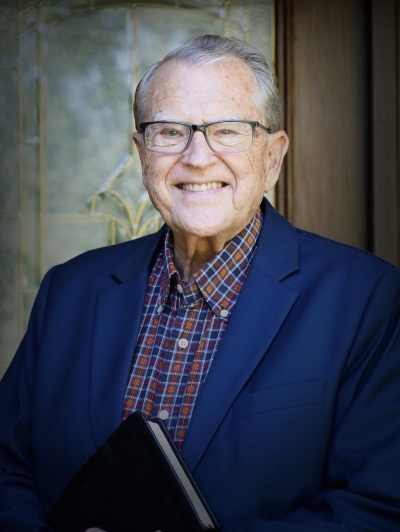RT Kendall tackles the pervasive problem of being a Pharisee in new book

Are you a Pharisee? According to a newly released book by distinguished theologian, pastor and author R.T. Kendall, the answer is very likely yes.
Kendall outlines the nature of modern Pharisee tendencies in You Might Be a Pharisee If...: Twenty-five things Christians do but Jesus would rebuke, released Tuesday through Charisma House.
While the term originally meant one who was separated, in modern language, a Pharisee is generally considered someone who is hypocritical on religious issues or sanctimonious.
Kendall explains that he was inspired to write the book during a theological debate via correspondence with prominent Jewish leader Rabbi David Rosen.
In his book, Kendall wrote that Rosen actually preferred the term Pharisee, believing that the phrase was given an unjustly negative meaning in the New Testament.
The 25 examples of Pharisee behavior listed by Kendall included: "We esteem 'the way we've always done it' above change, even when the latter is not heretical," "We are more concerned to uphold our theology than to help people," and "We major on minors."
Other listed examples were: "We love to point the finger," "We do not practice what we preach,” "We are motivated by money,” and "We call another person a 'Pharisee.'"
In an interview with The Christian Post on Monday, Kendall explained that he believed “every single one of them is” pervasive in American churches.
“The interesting thing is, when I sent this book, the manuscript, to some friends, four or five of them, every single one of them, no exception, wrote back and said, 'your book made me see that ‘I'm a Pharisee,’” he recalled.
“There's Pharisaism in all of us because we are all by nature self-righteous and this just pops out all the time. It pops out in me and we're not exempt from it, but it’s something we should be conscious of and guard against."

Kendall, who told CP that he mostly struggles with “pointing the finger, judging another person,” said that those outside of the Christian faith are just as susceptible to being Pharisees.
"Everybody by nature is born with a self-righteous attitude. I'm sure the Pharisees that Jesus referred to, they were not converted at all. They thought they would get to Heaven by their good works,” said Kendall.
“There are unconverted people who think that their good works save them and then, sadly, there are also Christians who, out of faulty theology, still are trusting in their works."
In recent years, some Christian writers, among them Dan Delzell, pastor of Wellspring Church in Papillion, Nebraska, have felt a need to address the concern of modern Pharisee tendencies.
In an op-ed published by CP in 2018, Delzell put forth five questions to ask oneself to determine how much of a Pharisee one might be:
- Is there any category of people who are "bigger sinners" than me?
- Does the story of Simon the Pharisee have relevance for others, but not so much for myself?
- When Scripture identifies examples of sin, do I tend to think about the sins of others rather than my own sin?
- Is there anyone I am mad at right now who needs to change more than I do?
- Would I be shocked to see Jesus accept certain sinners if they came to Him in repentance and faith?
“If you answered ‘Yes’ to one of these questions, then you have identified ‘a little Pharisee’ in you,” added Delzell. “And if you answered ‘Yes’ to more than one question, then the Pharisee in you is probably a lot more active than you realize.”
Kendall told CP that he hoped his book would help preachers gain a greater awareness of their own propensity to be Pharisees, thus helping their ministry efforts.
“I would hope that they would be conscious themselves and make them gentle with their people, those that they speak to, they preach to, they lead,” he said.
“Being aware that all of us are like this, so that we would be less judgmental and more humble, gracious when talking to those who are following us."






















